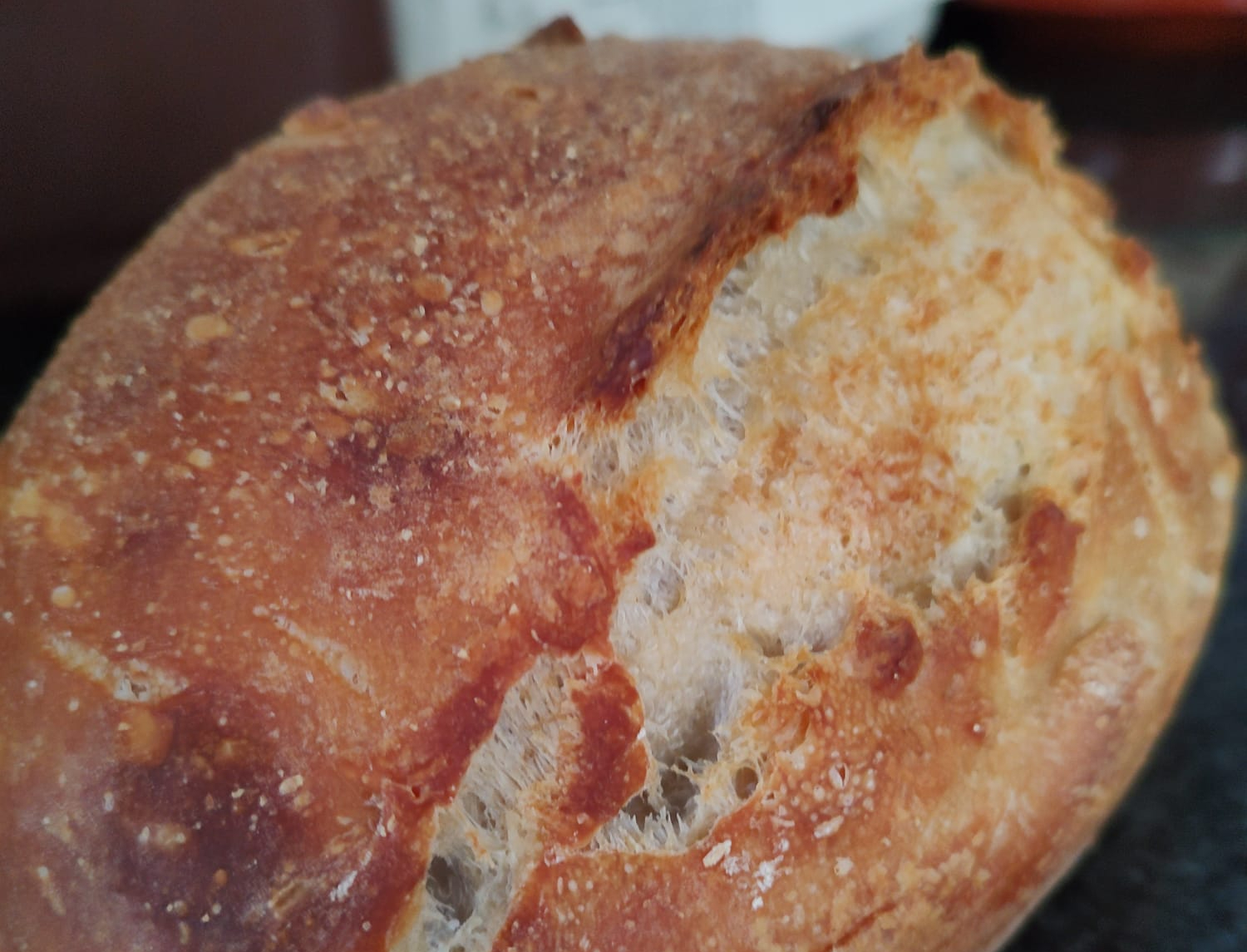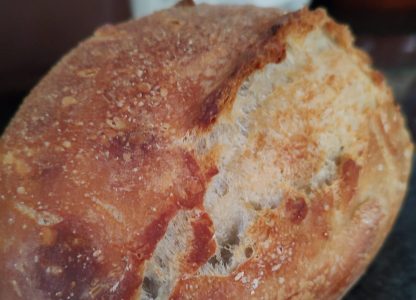Why join our workshop?
This question is best answered in two parts.
Why home-bake sourdough?
The short answer: Sourdough is both nutritious and delicious and supports a healthier lifestyle.
The longer answer:
The mixing, fermenting, and baking, all of those things should work in balance so you end up with something that transcends the simplicity of its ingredients.
Sourdough is both nutritious and delicious. It is more digestible for most people, with a greater bioavailability of nutrients, and well-tolerated by those with certain sensitivities to commercial baker’s yeasts, sugars or other additives. Sourdough bread may be easier to digest than white bread for some people, with a lower glycemic index and glycemic load, it is helpful for keeping blood sugars in a healthy range. Lastly, according to some studies, sourdough bread acts as a prebiotic, which means that the fibre in the bread helps feed the “good” bacteria in your gut, important for maintaining a stable, healthy digestive system.
Now take a bite out of a handsome slice of sourdough and another from a loaf made from commercial yeast and you’ll notice a difference right away. Sourdough breads just taste better, the flavours are more complex, caramel and earthy, more aromatic, with dairy notes. The improved flavour comes from a sourdough starter’s microbial diversity, a feature that commercial yeast lacks.
And yet, home-baked sourdough is more than nutritious and delicious home-baked bread.
The process of baking sourdough is sensuous and nurtures both mind and body, and requires a thoughtful and spiritual approach. Artistic and scientific, it is a combination of passion, patience, dedication and craftsmanship. It’s about connection, using hands, touch, smell, taste, sight, heat and mind.
The Sourdough School
Managing the complex-simplicity of it all, sourdough requires that you pay attention, to notice and acknowledge you are responding to a “living thing.” First your sourdough starter, then the sourdough itself.
Home-baking sourdough is a form of mindfulness. It is an ‘organoleptic‘ experience: It involves the use of all your senses and to ‘see the dough with your hands.’ The simple-complexity and the long fermentation, that requires noticing and flexible scheduling, means you have to relinquish some control of time also present an opportunity for you to be mindful, to lose yourself, to downshift, to escape, to go with your intuition. And to the end, sourdough is humble, rustic, basic food, ideal for sharing, and what better way to enjoy a fresh home-bake sourdough than with friends and family.
Yes, baking bread is good for the soul… it teaches us to slow down and wait, then wait some more.
Sarah Z
And then, there is the hopeful expectation that the sourdough will ‘spring,’ during the first minutes of baking, and look great, as well as taste delicious – this is all part of the allure.
There is the accountability, home-baked sourdough is certainly an unforgiving teacher. It has certainly taught me how to fail forward, with dignity. After two days of preparation, mixing, resting, folding, shaping and baking, on numerous occasions, I have been left disappointed if not disheartened. And frustratingly, success one home-bake, one day, does not underwrite success the next.
And why a workshop?
The short answer: Learn and get hands-on. Enjoy time with other like minded people. And “leave with,” know-how, a sourdough starter, dough, memories, connections and hopefully a little more confidence to home-bake sourdough.
The long answer:
There is so much information, knowledge and content being shared around sourdough, it can be overwhelming. A hands-on workshop, in a beautiful setting, connecting with other sourdough curious people, is a wonderful way to learn and spend time – it is self-care. “What you leave with,” is all important: know-how, a sourdough starter, dough ready to bake, memories, connections and hopefully a little more confidence to home-bake sourdough.
Recommended reading, listening and watching
Sourdough classics: Chad Robertson’s Tartine Bread and Vanessa Kimbell’s Sourdough School.
Hendrik Kleinwächter crowd-funded project from The-Sourdough Framework.
Netflix episode “Cooked: Air.”

